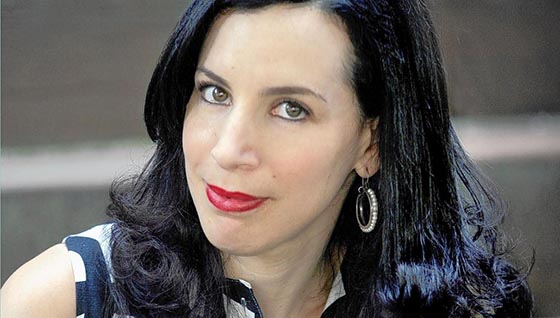
Journalisten Emily Parker har granskat betydelsen av internet och sociala medier för dissidenter i länder som Kina, Kuba och i Ryssland. Nu kommer hon till Stockholm och Internetdagarna för att prata.
English version available here.
Emily Parker är före detta journalist på Wall Street Journal och New York Times. I hennes senaste bok, Now I Know Who My Comrades Are: Voices from the Internet Underground, har hon intervjuat inflytelserika bloggare i Kina, på Kuba och i Ryssland.
–I länder där medierna kontrolleras av staten erbjuder internet en plattform för vanliga människor där de kan diskutera frågor som inte förekommer i tidningarna eller på teve. Länder som Kina har naturligtvis en mycket omfattande censur av internet. Men trots det innebär internets inneboende struktur att det är extremt svårt för myndigheterna att helt kontrollera informationsflödet. Människor hittar sätt att uttrycka sig och få informationen att nå förbi censuren, säger Emily Parker.
Du har också rest i Mellanöstern för att undersöka de nya mediernas roll i Egypten efter revolutionen. Vad har du dragit för slutsatser från den regionen när det gäller att kontrollera information?
Jag reste till Egypten ganska snart efter 25 januari-revolutionen. Vid den tiden tittade jag närmare på vilken roll de sociala medierna hade i skapandet av ett nytt Egypten. Som vi såg under den arabiska våren kan sociala medier vara ett effektivt verktyg för att fälla en regering. De har inte alltid använts effektivt för att återuppbygga nya, demokratiska myndighetsstrukturer.
Du är grundare av Code4Country, det första kodmaratonet mellan USA och Ryssland som ägde rum 2011. Vad har hänt sedan dess?
Code4Country samlade ryska och amerikanska programvaruutvecklare för att arbeta med problem i fråga om öppenhet och transparens för myndigheter. Det hade offentligt stöd i båda länderna. Sedan dess måste jag dessvärre säga att relationerna mellan Ryssland och USA har försämrats så mycket att det nästan är omöjligt att föreställa sig att Code4Country skulle kunna äga rum i dag.
Mot bakgrund av ditt expertkunnande, hur ser du på den närmaste framtiden i fråga om frihet på internet och sociala medier runtom i världen? Med andra ord, ser du något mönster?
I takt med att internet blir ett alltmer kraftfullt verktyg för att främja åsiktsfrihet och gemensamma aktioner, kommer världens förtryckarregimer i allt högre grad att försöka kontrollera webben. Det blir ingen lätt kamp, men det är inte säkert att regeringarna kommer att vinna i slutändan.
Internet as a potent tool for promoting free expression
Emily Parker is a journalist who spent over five years working for The Wall Street Journal, first as a writer in Hong Kong and later as an editor in New York. From 2004 to 2005, she wrote a Wall Street Journal column called ”Virtual Possibilities: China and the Internet.” She was also a staff op-ed editor for The New York Times.
In her latest book, Now I Know Who My Comrades Are: Voices from the Internet Underground, she has interviewed influential bloggers in China, Cuba and Russia.
–In countries where the media is controlled by the state, the Internet offers a platform for ordinary people to discuss issues that don’t appear in newspapers or on television. Countries like China, of course, have very extensive Internet censorship. Even so, the very nature of the Internet makes it extremely difficult for governments to completely control the flow information. People find ways to express themselves and to get information past the censors, Emily Parker says.
You have also traveled to the Middle East to explore the role of new media in post-revolutionary Egypt. What are your conclusions from that region when it comes to control of information?
I traveled to Egypt not too long after the January 25 revolution. At that time, I was looking at the role of social media in creating a new Egypt. As we saw in the Arab Spring, social media can be an effective tool for taking down a government. It is has not always been used as effectively for rebuilding new, democratic governance structures.
You are a founder of Code4Country, the first major codeathon between Russia and the United States which took place in 2011. What has happened since then?
Code4Country gathered Russian and American programmers to work on problems of open government and transparency. It had official support in both countries. I am sad to say that since then, the relationship between Russia and the United States has deteriorated so much that it is almost impossible to imagine Code4Country happening today.
Given your expertise, what are your thoughts about the near future in terms of internet and digital media freedom around the world? Can you spot any pattern, so to speak?
As the Internet becomes an ever more potent tool for promoting free expression and collective action, repressive governments will increase their efforts to control the Web. This will not be an easy battle, but it’s also not clear if the governments will ultimately win.

